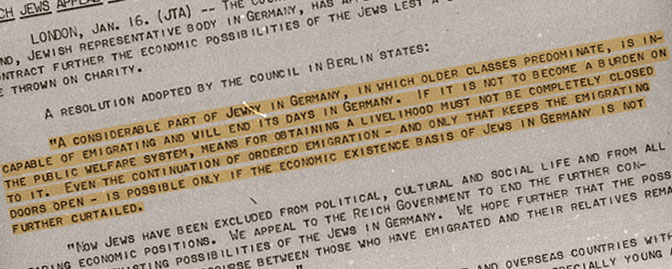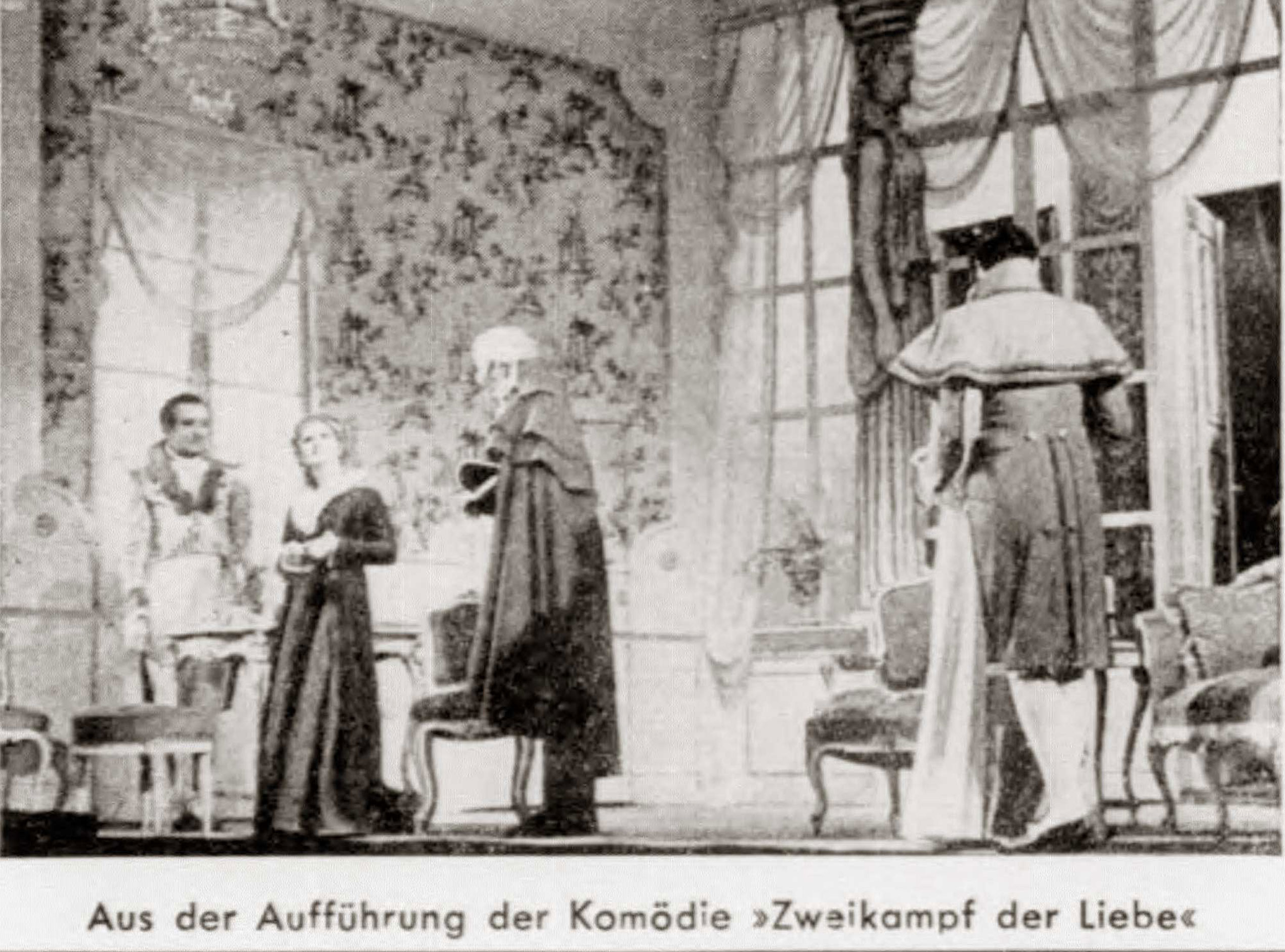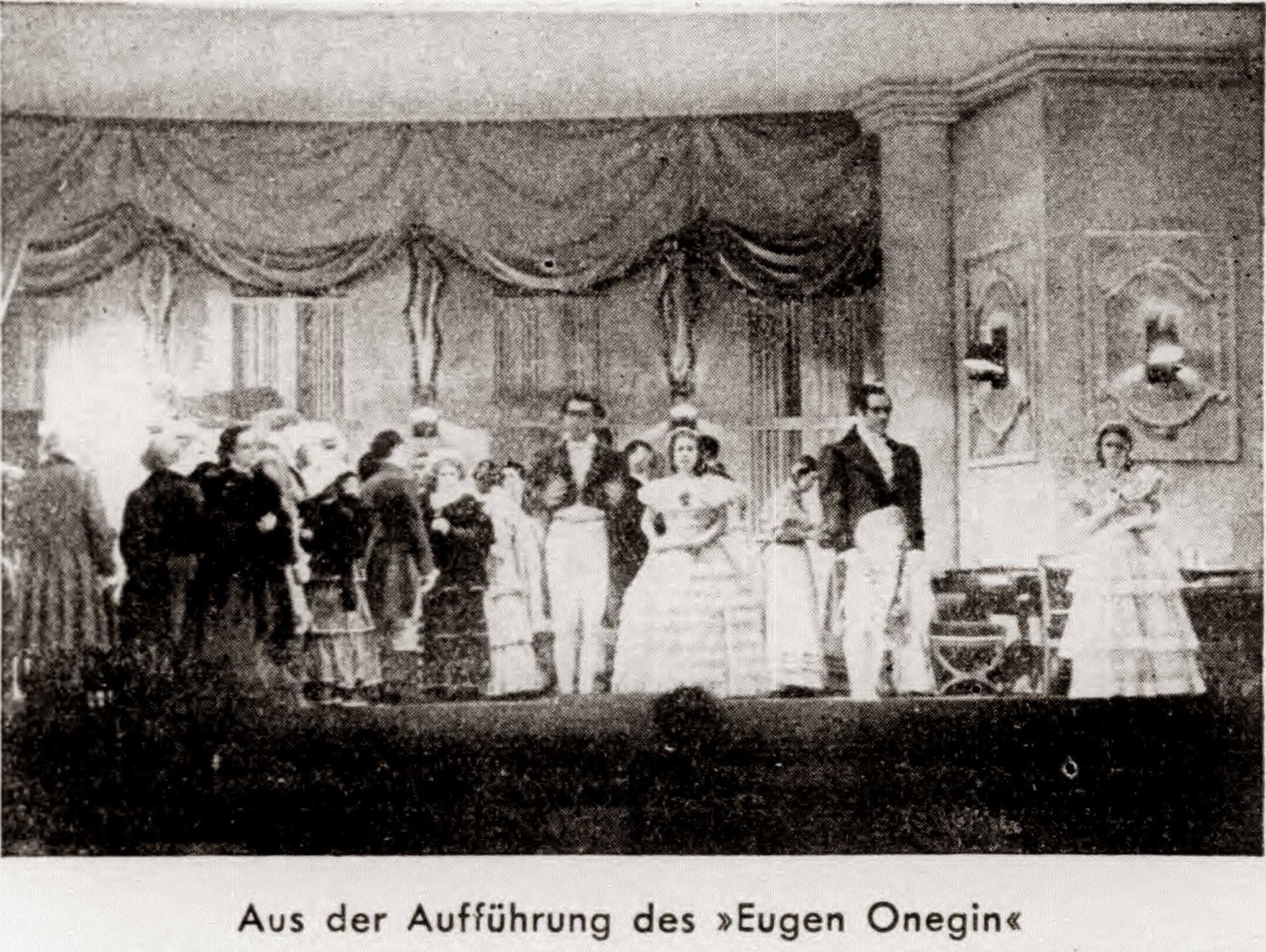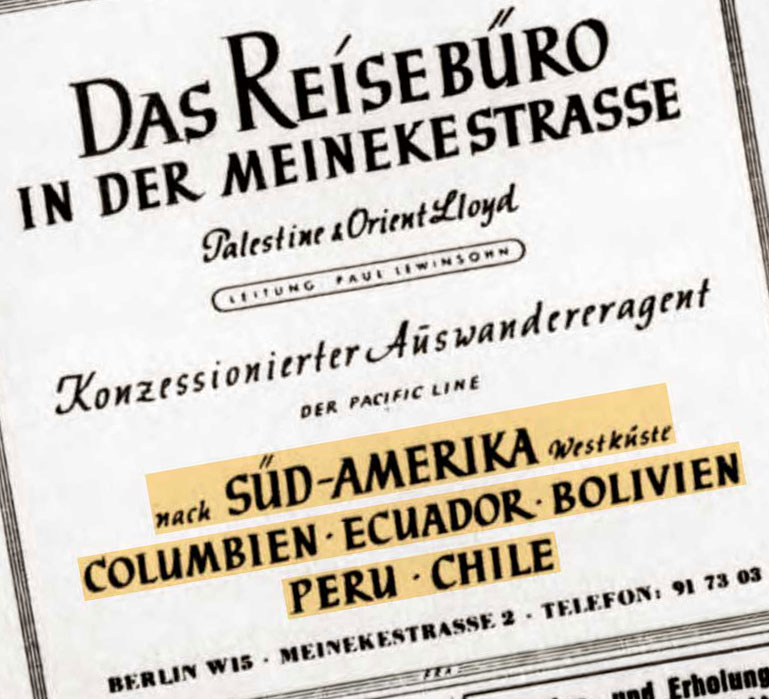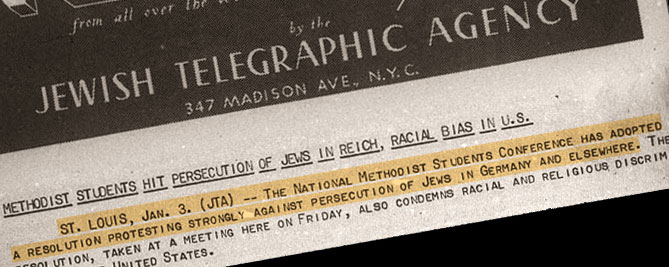Nowhere safe to go
Dramatic events in Palestine
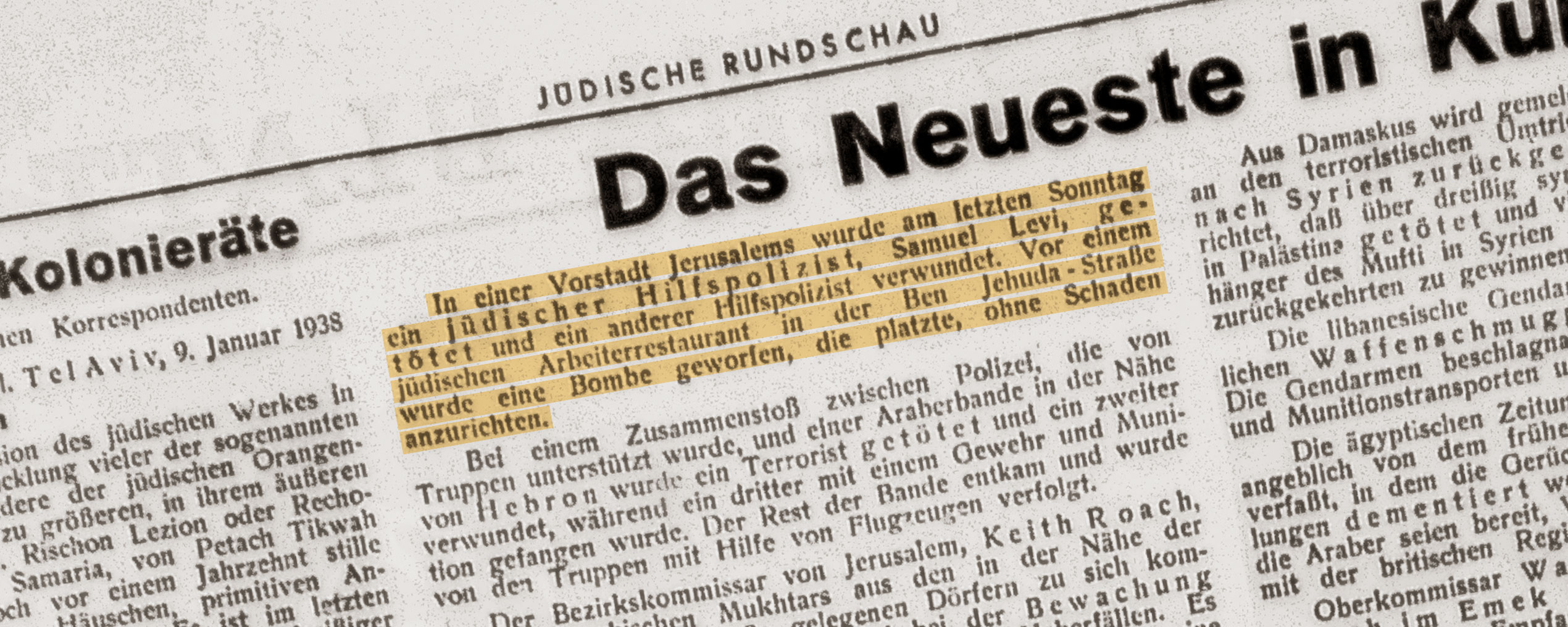
Last Sunday in a Jerusalem suburb, one Jewish auxiliary police man, Samuel Levi, was killed and another injured. In front of a Jewish workers' restaurant on Ben Yehuda Street, a bomb was dropped, exploding without doing damage.
Jerusalem
When German Jews considered the various emigration options in January 1938, Palestine might have seemed a dangerous destination. As the Jüdische Rundschau reported, in the same month, attacks against Jewish inhabitants and clashes between Jews and Arabs occurred in numerous places in Palestine. Apart from local resistance, the paper mentioned Syrian terrorists, the smuggling of weapons from Libya, and the refusal of the Egyptian government to conduct direct Arab-Jewish negotiations. In light of these facts, emigrating to Palestine could appear to the prospective emigrants like jumping from the frying pan into the fire rather than finding a safe refuge.
SOURCE
Institution:
Compact Memory, Universitätsbibliothek Frankfurt am Main 
Collection:
"Das Neuste in Kürze." Jüdische Rundschau (Berlin) 
Original:
Vol. 43, no. 5: 4








































